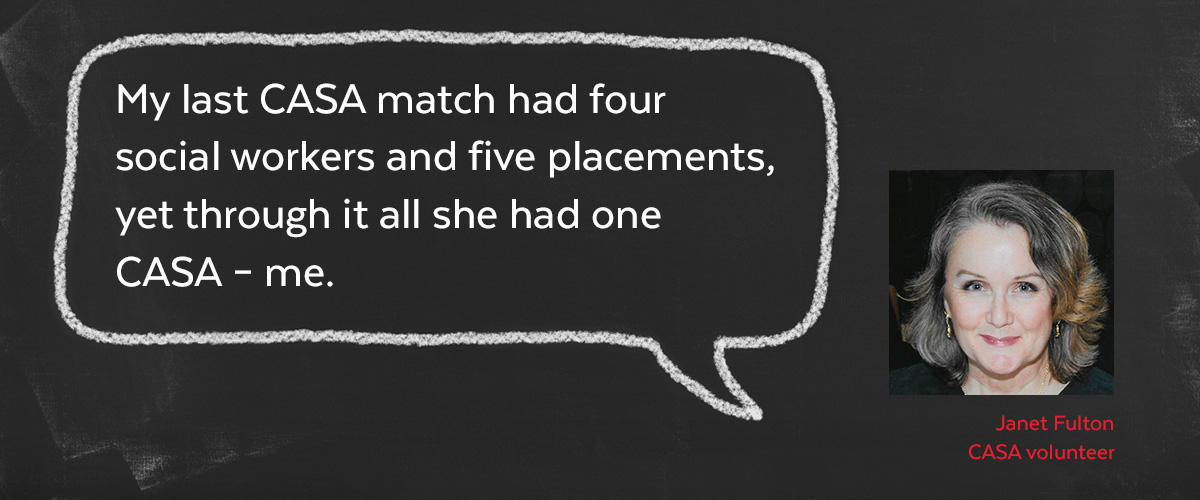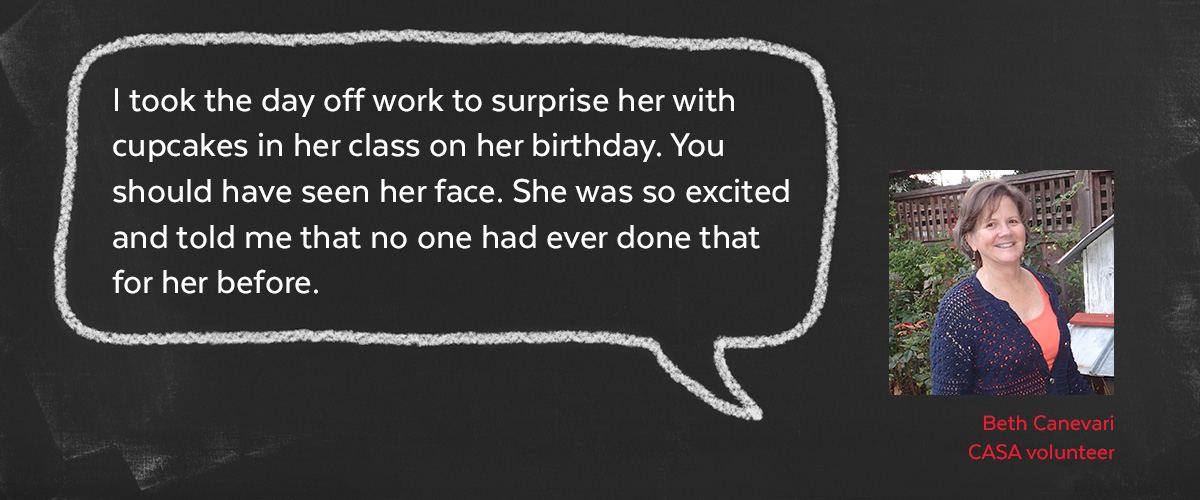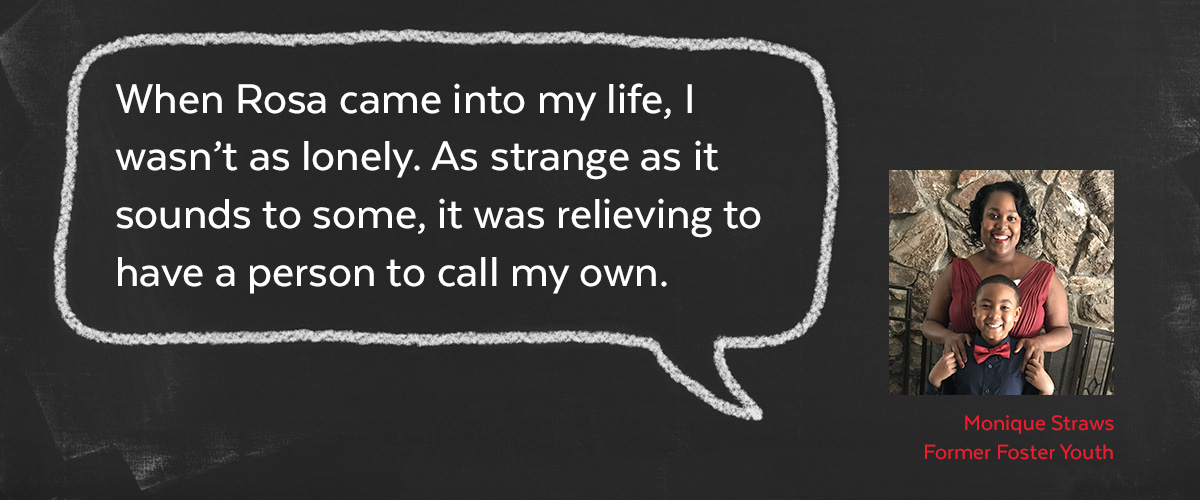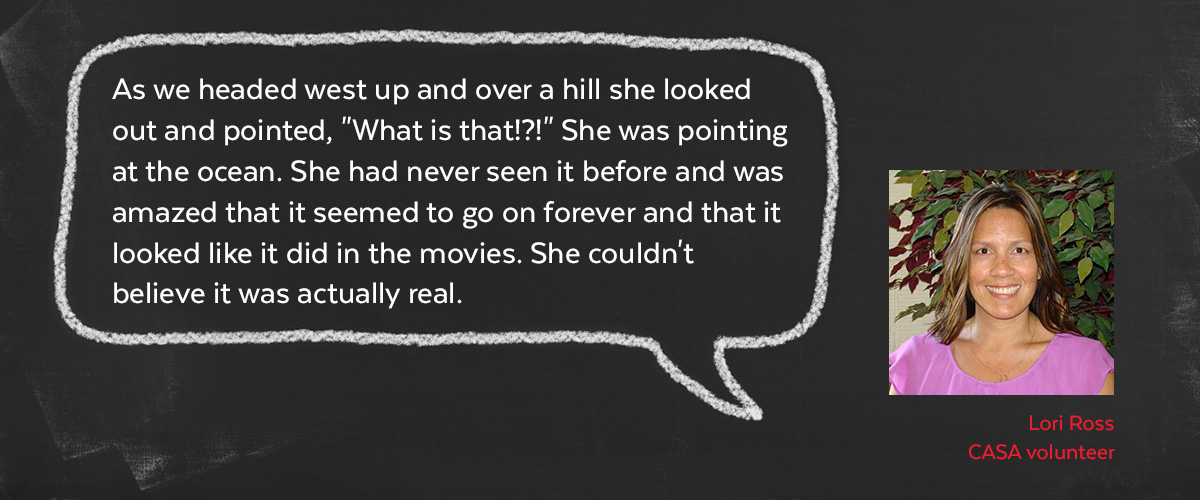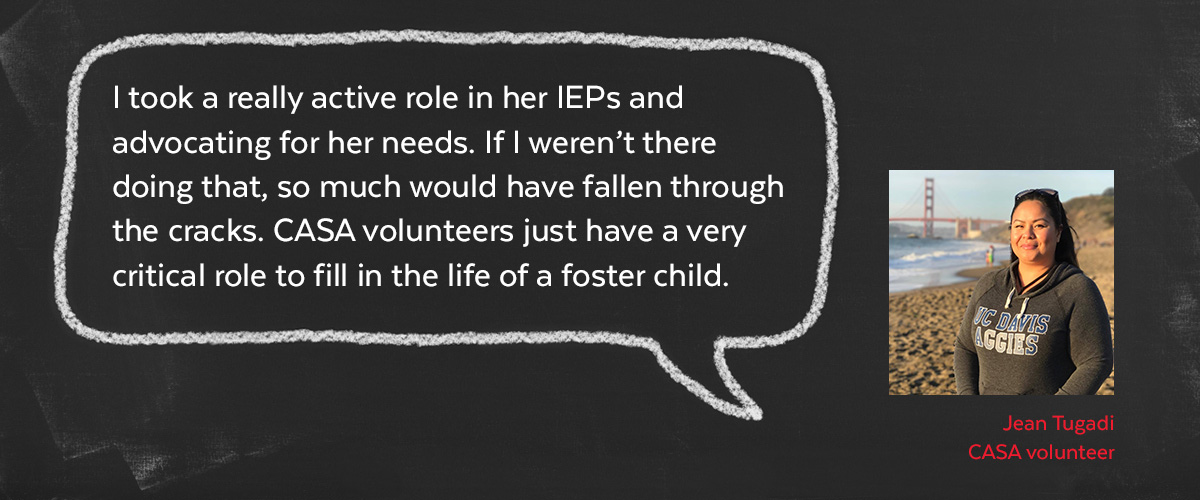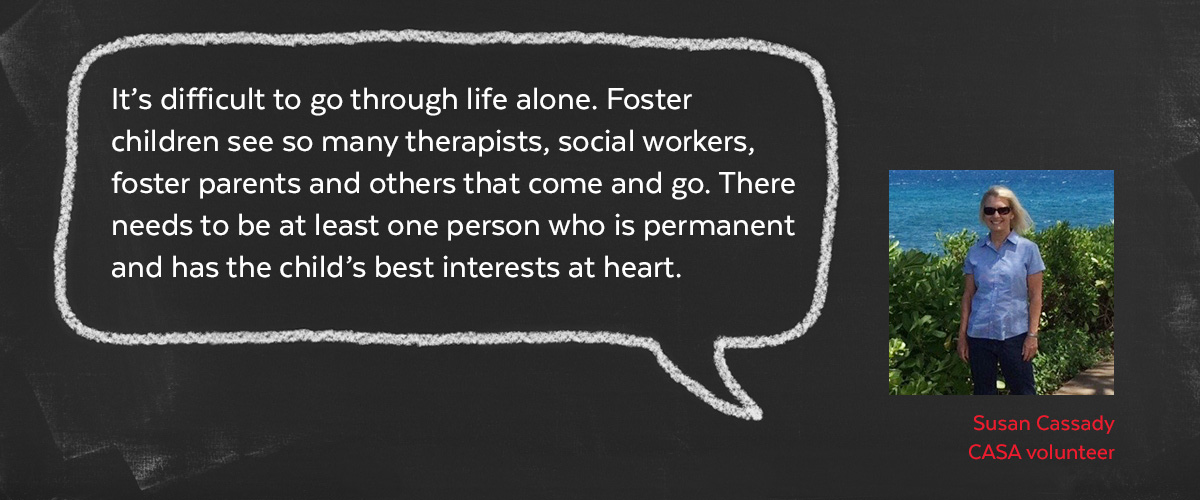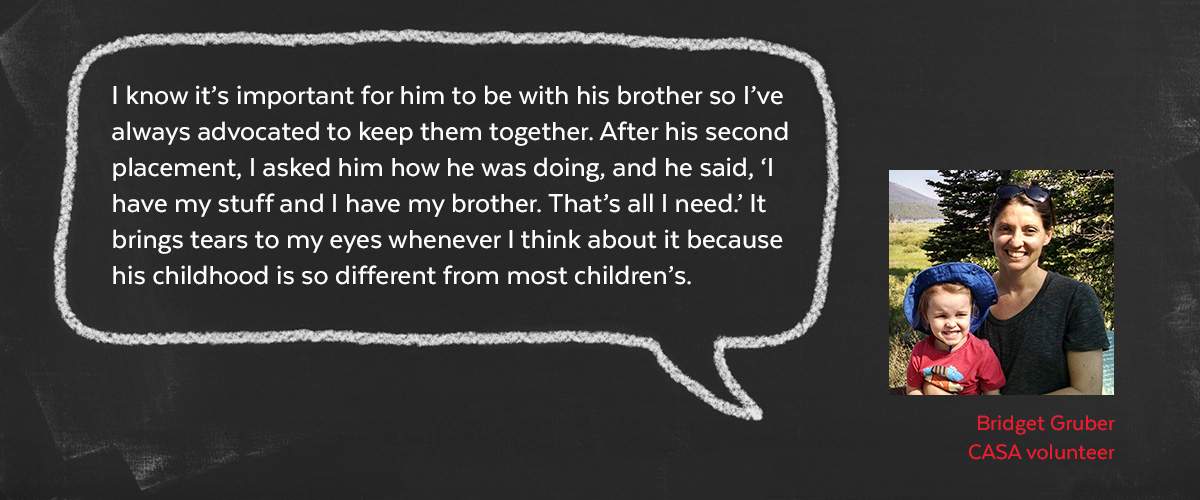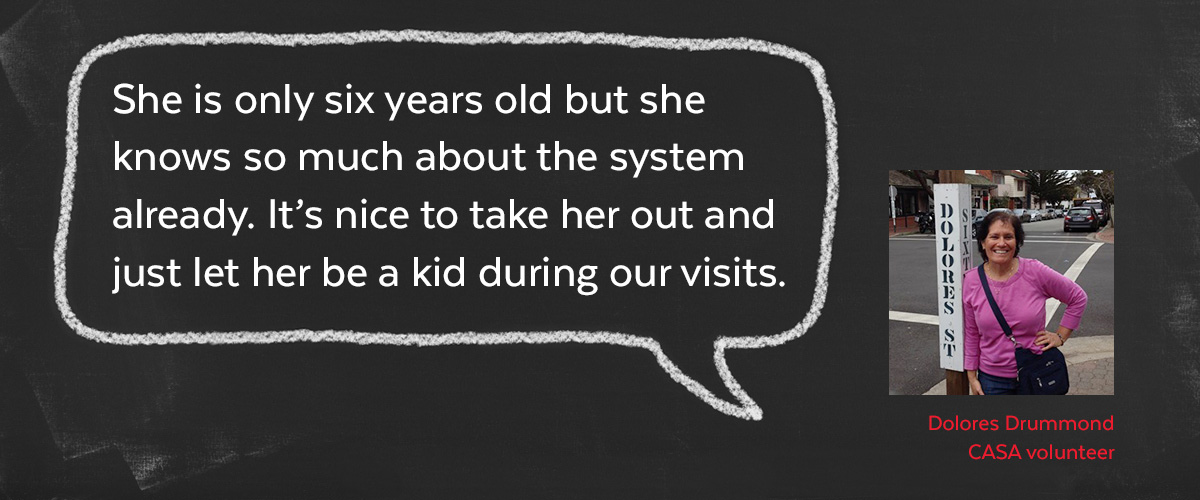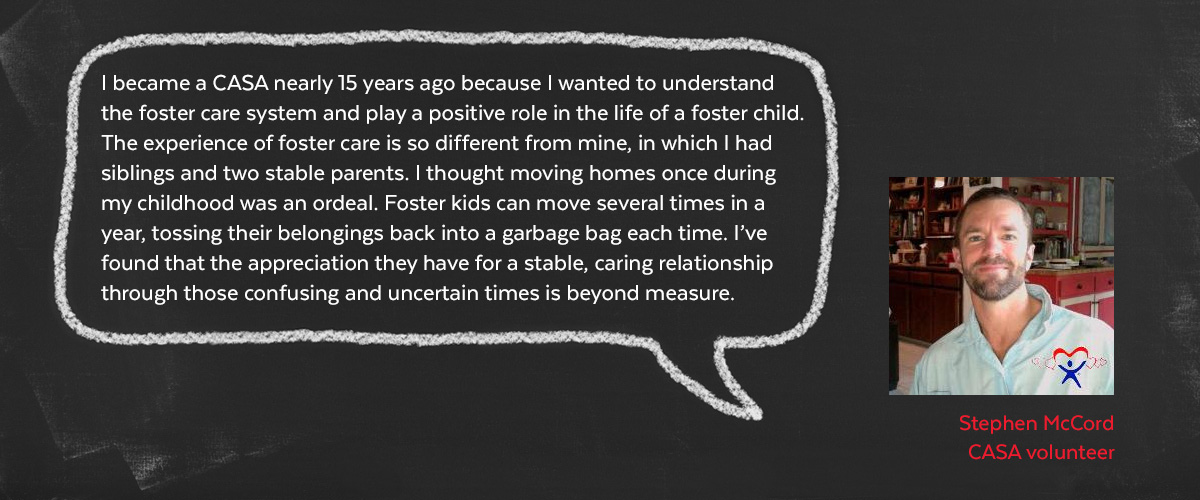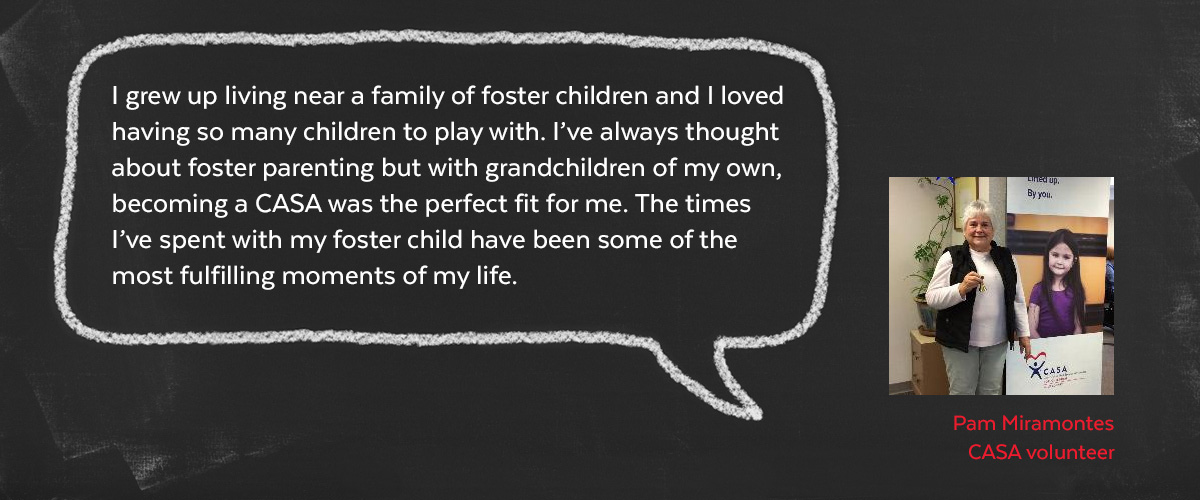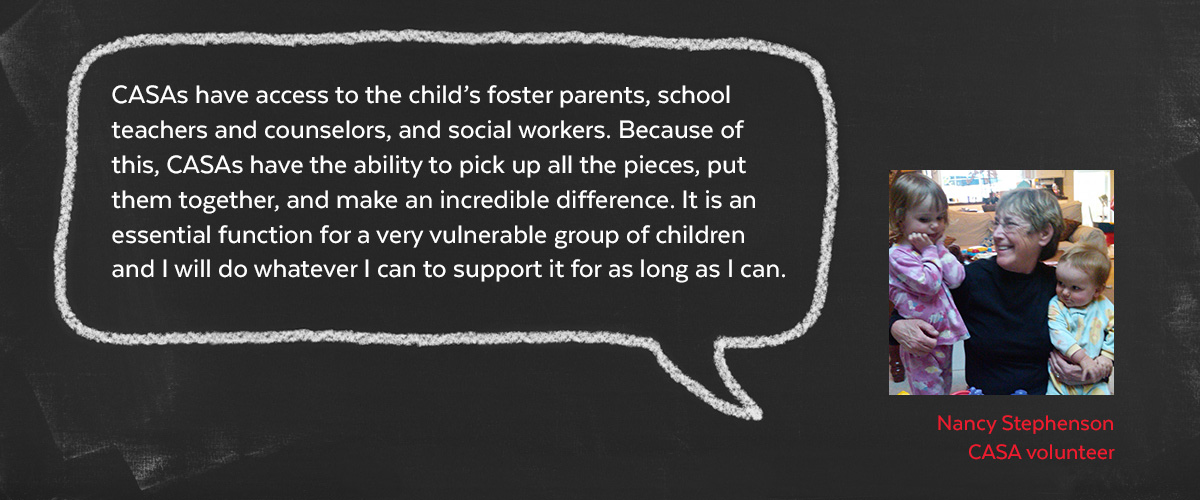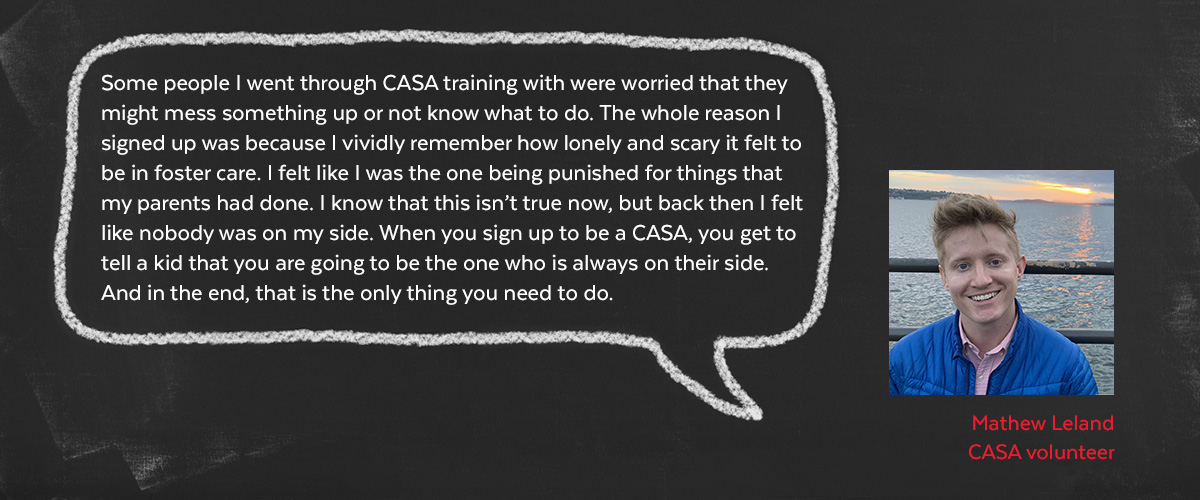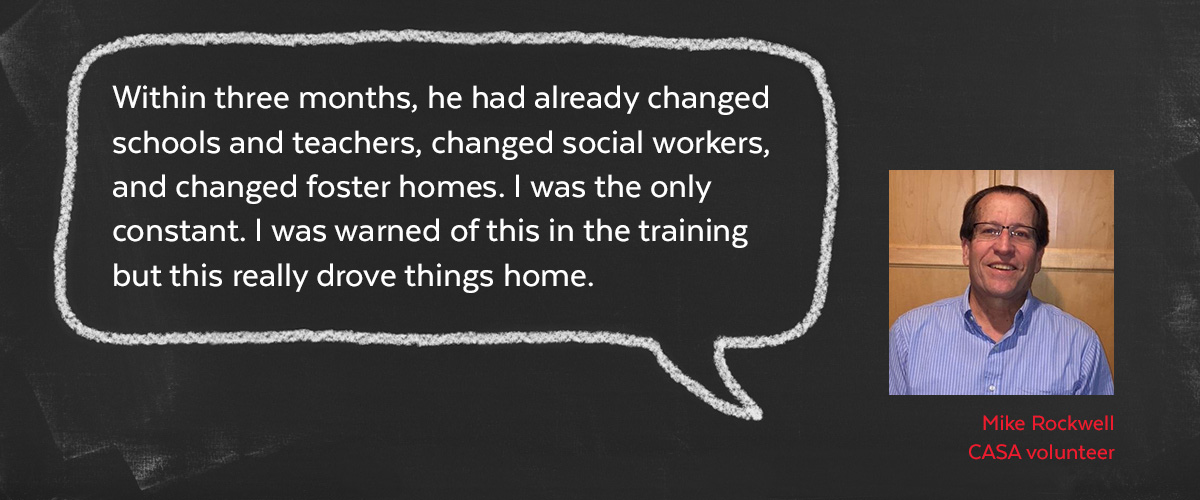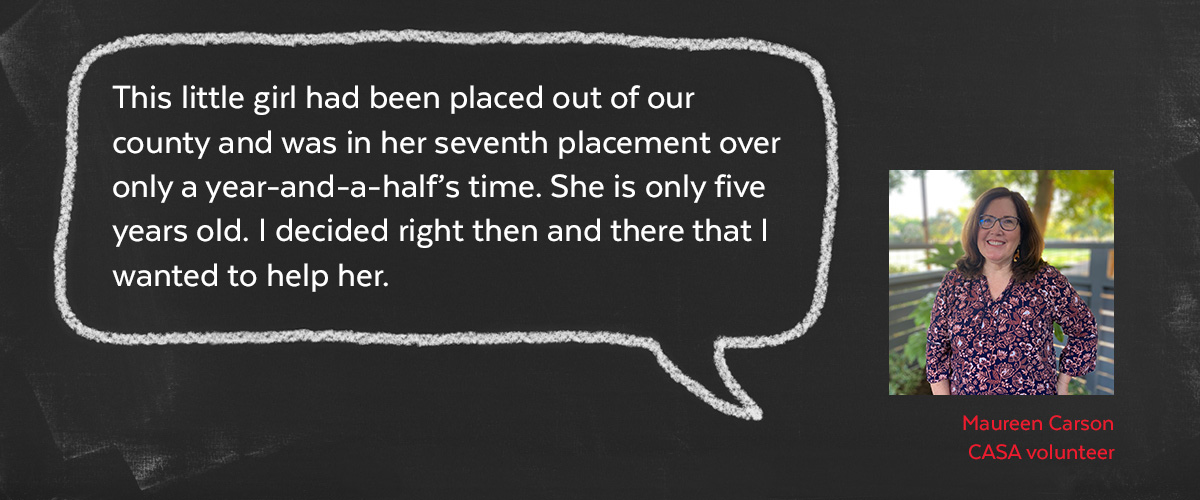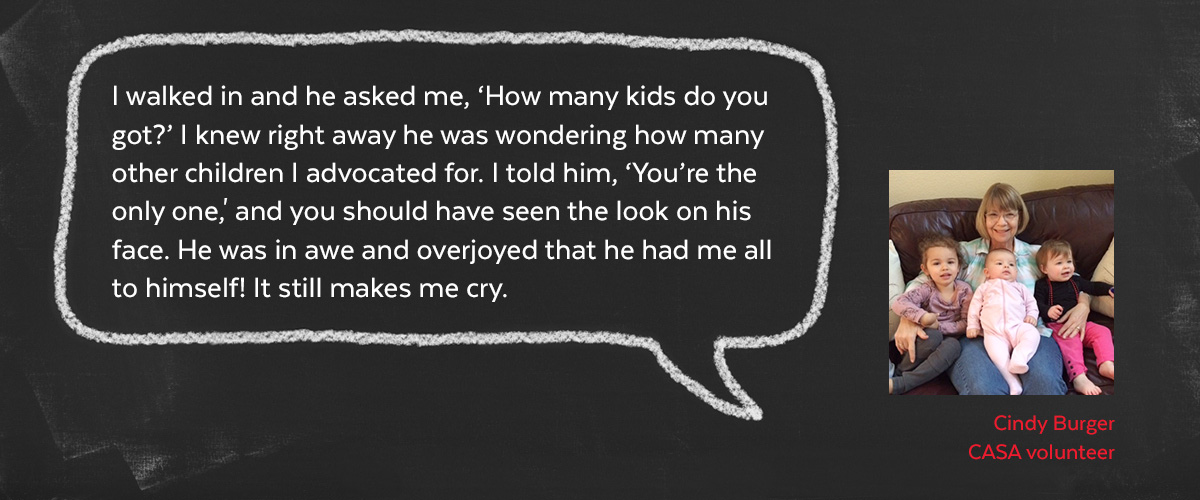Janet Fulton’s experience with CASA stretches from the east to west coast. A long-time Yolo County resident, Janet resided in Davis from 1997-2005 until marriage brought her East. It was in North Carolina that she and her husband first heard of CASA.
“Our church encouraged members to volunteer for a variety of community organizations. My husband and I observed the how strong the role of a Guardian Ad Litem can be, good or bad, through a vicious custodial battle known to us. So, we naturally gravitated to CASA over some of the other choices, wanting to help children caught up in the court system who have no one speaking for their best interests.”

Janet and her husband went through CASA training together and were matched with four siblings from the same family. “I was assigned to twin toddler boys and my husband was assigned to their middle-school-aged brothers. Sometimes we did home visits together and we also did a lot of individual visits with our CASA children. It was a rewarding experience from day one. When I discovered CASA, I discovered the most meaningful activity of my life – paid or unpaid.”
While the relational component of being a CASA is extremely important, Janet also highlights the advocacy component. “You must be a bulldog for a child that isn’t always seen as an individual in the system. When you realize what a difference you can make in the child’s life, you just keep at it. Quitting or being half-hearted is off the table.”
In 2010, Janet and her husband moved back to Yolo County. With a heart for foster youth, she currently collaboratively administers several programs that support eligible current and former foster youth attending community college and is the lead program manager for the Cooperating Agencies Foster Youth Educational Support Program at the California Community Colleges Chancellor’s Office. She also continues her CASA work in Yolo County, “I hope to be with CASA in some way for the rest of my life.”
At first she was nervous when matched with a teenager but it led to wonderful experiences. “Comfortable with the advocacy side of being a CASA, I was intimidated by the thought of being matched with a teenage girl; after all, back in the day I was one. Fears are exactly where the Yolo County CASA staff come in. Not only do they provide training, but they are a phone call away for any issue that emerges–whether it is related to writing a report or a relational issue with your CASA match. In my case, I found my fears to be groundless. The girl with whom I was matched was delightful and happy just to have someone in her life that wanted to spend time with her.”
In fact, Janet found great joy in teaching her teenage CASA child useful skills. “I really enjoyed exposing my teenage CASA match to new things and teaching her life skills. We did things together like geocaching, going for coffee or yogurt, going to the dog park, or, on special occasions, attending a performance or going out to eat as a backdrop to our relationship. I taught her how to read a bus schedule and rode her route with her for the first time so she wouldn’t be intimidated by public transportation. I helped her open her first checking and savings accounts and taught her how to use an ATM. When I learned of her love of singing, I developed an application to the Yolo County Children’s Fund — including a video of her singing — to request funds for singing lessons. It’s so satisfying to know that you’ve done your best to help a child or youth who needs support.”
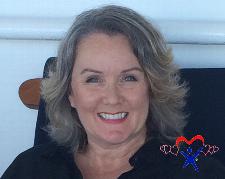
Janet’s CASA match grew to the point that she no longer wanted Janet’s assistance in reporting to the court and is now aged out of the system. Yet recently, Janet’s CASA match contacted Yolo County CASA to request that Janet be matched with a girl who needed to learn self-advocacy skills, as she did when she was younger, saying, “Janet would be the best at that.” Janet looks forward to meeting-up with her former match, when her match is ready, sometime in the future. In the meantime, Janet facilitates the TAY CASA program, a networking and support group for CASAs matched with Transition Age Youth. This program features educational speakers and round-table discussions about issues unique to the teenage and young adult age group. It also provides technical training on things like report writing or the ways CASAs can use technology, and training about programs that transitional aged youth are eligible for, like community college support programs and housing assistance.
In the future, Janet plans to stay involved in CASA. When asked about a favorite memory, she said that she enjoyed watching her CASA match grow from being cowed by the desires and opinions of others to a young woman who was unafraid to assert herself. She highlights the two-pronged advocacy and relational components to being a CASA. “You get to know your CASA child or children on such a personal level and you really become a champion for them. You think about how you can make their situation better and what you can do to help them get services and extras they need. My last CASA match had four social workers and five placements, yet through it all she had one CASA — me.”
Thank you, Janet, for everything you do to make the lives of foster youth better.

